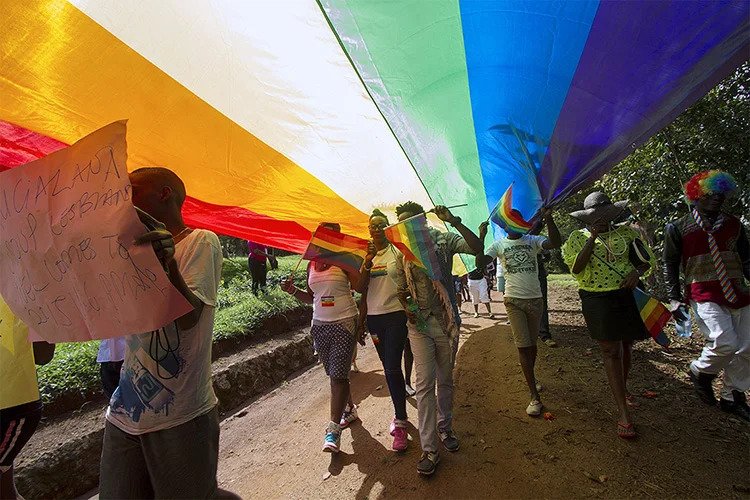
When Geoff Dancy wanted to research where people are most interested in human rights, he fully expected it would come from countries in the Global North – such as Canada and the United States.
But when Dancy – an associate professor in the University of Toronto Mississauga's department of political science – and his colleague delved deeper into the topic, they discovered the total opposite was true: it is those in the Global South, who regularly face suffering and violence at the hands of their governments, who consistently search online for information about human rights.

“Our expectations were completely flipped on their head,” Dancy says. “It goes against this academic narrative that exists right now that human rights aren’t from – and don’t resonate in – the Global South. We found the exact opposite of that.”
Dancy, along with his colleague Christopher Fariss, an assistant professor in the University of Michigan's department of political science, detail their findings in a new paper published in The American Political Science Review.
As part of their research, Dancy and Fariss used the Google Trends analytics tool, which collects aggregated data on what people are searching for on Google. They examined Google searches from between 2015 and 2019 for the term “human rights,” looking at data from 109 countries and across five languages.
As they analyzed the data, they discovered that interest in human rights was more pronounced in the Global South – for example, in countries such as Guatemala, Honduras, Zimbabwe and Uganda.
Dancy and Fariss found that the top three countries that searched for “human rights” the most in English were Zambia, Zimbabwe, and Uganda. In the Spanish-language group, the most searches came from Guatemala, El Salvador, Honduras and Mexico.
“The biggest correlation of searching for human rights is political violence," Darcy says. "If you live in a place where the government is attacking its citizens, then you see more searches for human rights."
He points to Uganda, whose government has passed stringent anti-LGBTQ+ laws that subject people to lifetime imprisonment – and more recently, the death penalty – for being openly gay.
“People are searching for human rights because they want to fight back against that,” Dancy says.
In Global North countries, the researchers discovered a different pattern. The United States, which did not make the top 12 searchers, scored high for one week in the summer of 2018 when there was extensive media coverage of family separations at the U.S.-Mexico border.
While Dancy notes that 2021 falls outside of the study’s time period, he has since discovered a similar pattern in Canada. In September 2021, Google searches for human rights spiked in Canada – which coincides with major news events at the time, such as the first National Day for Truth and Reconciliation, as well as vaccine mandates.
“In the Global North, they get very brief and ‘faddish’ interest in human rights and then it goes away,” Dancy says. “But in the Global South, people are constantly searching for human rights. There aren’t spikes and troughs, just steady searches.”
He adds that the research challenges scholars who claim that many people today are less attuned to concepts around human rights.
“There are a number of scholars who argue that human rights isn’t getting the job done – it isn’t going far enough to make change, and so people will lose interest in human rights as a global movement,” Dancy says.
“But people in the Global South very much want human rights . . . and find them to be a useful tool still. In some ways, this [research] is a reclamation of the importance of the human-rights movement around the world.”
The research received support from the Global Challenges Research Fund, the Social Science Korea Human Rights Forum, the Ministry of Education of the Republic of Korea and the National Research Foundation of Korea.
This story was originally published by University of Toronto on April 27, 2023.